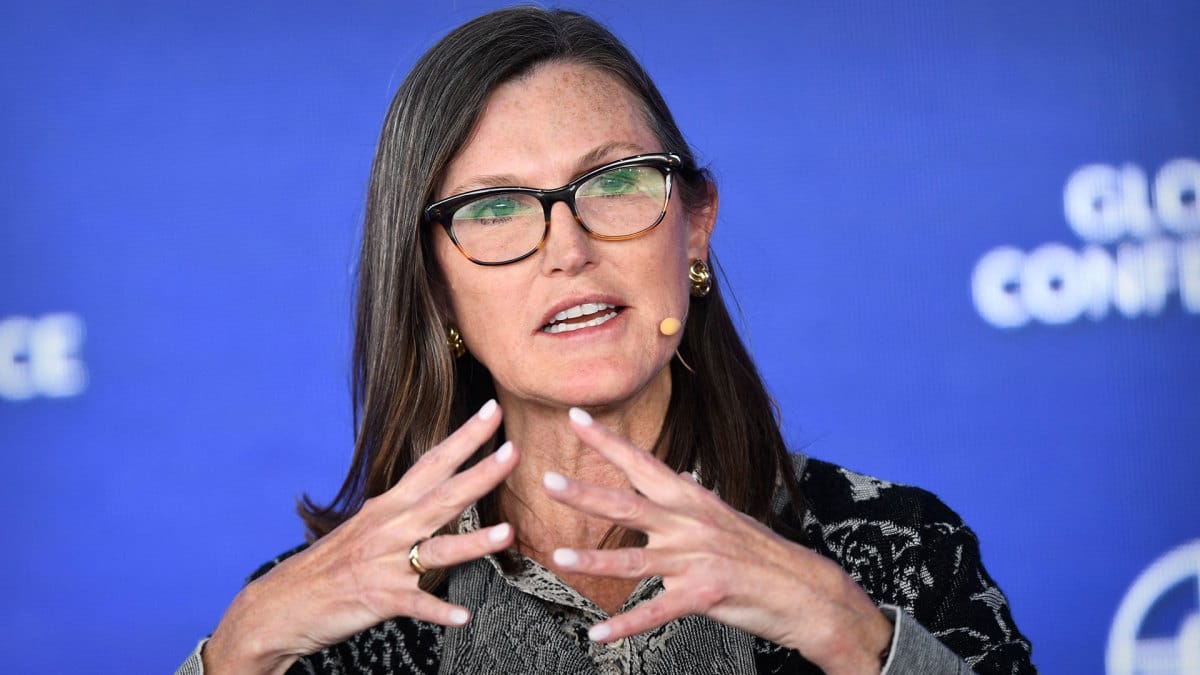Cathie Wood Predicts Bitcoin Will Reach $1.5 Million By 2030

Cathie Wood, the CEO behind ARK Invest, has once again captured headlines with her latest forecast. During an interview today on CNBC with host Andrew Sorkin, Wood reiterated her belief that Bitcoin could soar to an astonishing $1.5 million by the year 2030. This prediction isn't just a number plucked from the air; it's rooted in a detailed analysis of Bitcoin's potential to disrupt traditional finance.
Wood's conviction stems from several key trends she believes will propel Bitcoin to such heights. She sees Bitcoin not merely as a digital currency but as a groundbreaking financial instrument that could redefine how we view and handle money. Here's why she might be onto something significant.
Bitcoin's Role in Financial Transformation
Bitcoin, since its inception in 2009, has been more than just another cryptocurrency. It's often described as digital gold, a store of value for the digital age. Wood's perspective is that Bitcoin's value proposition lies in its scarcity combined with its utility as a hedge against inflation, much like gold. However, unlike gold, Bitcoin's digital nature allows for instant, borderless transactions, making it far more practical for global use.
The narrative Wood paints is one where Bitcoin becomes a staple in investment portfolios, not just for the tech-savvy but for mainstream investors. She envisages a world where the skepticism around cryptocurrencies fades, replaced by recognition of Bitcoin's robust blockchain technology. This technology, she argues, ensures security, transparency, and immutability, aspects that are becoming increasingly critical in a digital-first economy.
The Institutional Adoption Wave
A significant part of Wood's prediction hinges on institutional adoption. Initially, Bitcoin was the domain of individual enthusiasts and speculators. However, the landscape has shifted. Major corporations and financial institutions are now dipping their toes into crypto waters. Companies like Tesla and Square have already invested in Bitcoin, signaling a broader acceptance.
Wood anticipates that as more institutions enter the market, the demand will skyrocket, pushing Bitcoin’s price to unprecedented levels. She points to the upcoming Bitcoin halving events, which reduce the supply of new Bitcoins entering the market, as a catalyst for price increases. Halvings are programmed into Bitcoin's protocol to occur roughly every four years, effectively making Bitcoin scarcer over time, which, if demand increases, could lead to dramatic price surges.
Technological and Regulatory Challenges
However, the path to Wood's $1.5 million valuation isn't without its hurdles. Technological scalability remains a concern. Bitcoin's network, while secure, has been criticized for its slow transaction speeds and high fees during peak times.
Regulatory landscapes also pose a challenge, although as Wood states, with the new Trump administration things are looking more positive than ever. Wood's optimism, however, is based on the belief that regulatory frameworks will eventually become more accommodating, recognizing the benefits of cryptocurrencies alongside their risks.
Economic Implications
If Bitcoin were to reach such a valuation, the implications for the global economy would be profound. It would mean a significant shift in how wealth is stored and moved across borders. For countries with volatile currencies or political instability, Bitcoin could become a preferred method to preserve wealth. This scenario could lead to a reevaluation of monetary policies and perhaps even change how central banks operate in the digital era.

